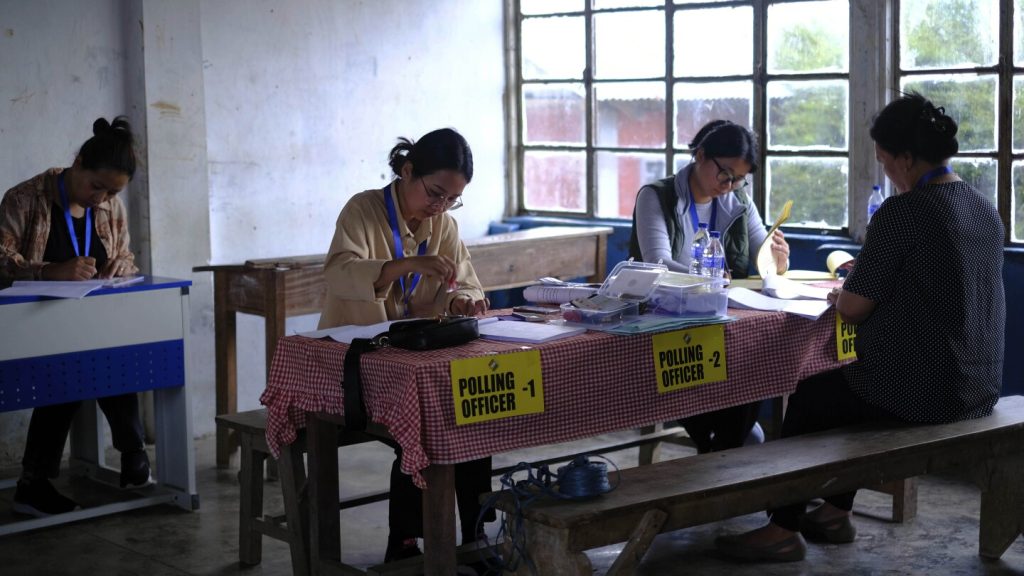In the remote village of Chedema in the mountain state of Nagaland, India, a unique initiative was taken during the national elections. The Government Middle School in Chedema saw an orderly line of voters waiting patiently, despite a malfunctioning voting machine. What made this polling station special was that it was solely managed by women polling officers for the first time in Nagaland. The four women officers were on electoral duty for the first time and were responsible for surveying the polling station, securing the perimeter, and handling the paperwork involved in the election process. Even on the eve of polling, the women officers were dedicated to their duties, with a local woman named Eholi Jimo cooking them a meal over an open fire.
The decision to have an all-women polling station was made by Kumar Ramnikant, the administrative head of Kohima district, with the aim of breaking gender stereotypes and promoting equal contribution from both men and women in the development of the country. According to Ramnikant, true empowerment should not be limited to just the top levels of society but should permeate to all layers. The women officers at the Chedema polling station were praised for their systematic approach to their duties, with one officer noting that women tend to take every task seriously, unlike men who may have a more relaxed attitude. The national elections in India began on Friday and will continue until June 1, with each phase held on a single day across multiple states.
Security concerns are a major issue during elections in India, given the history of violence and electoral malpractices. However, at the Chedema polling station, security was not a concern as the constituency had not experienced any election-related violence recently. The Election Commission of India has the mammoth task of ensuring that a voting booth is available within 2 kilometers of every voter, resulting in about 15 million election officials and security staff traversing difficult terrains to reach every voter, whether by boat, foot, or even on horseback. The women officers at the Chedema polling station were led by Neichütuonuo Yhome, the presiding officer, who diligently carried out her duties, ensuring that everything ran smoothly and on time.
The women officers at the Chedema polling station displayed dedication and resilience in their roles, even spending the night before polling day on the cold concrete floor of a classroom. Despite the discomfort, the village leader arranged for rugs for them, considering them as guests of the village. The polling day saw a steady stream of voters, with Naga women arriving to cast their votes and long queues forming at the polling station. The women officers, including Neichütuonuo Yhome, Nukutholu Nienu, and Neke W Konyak, worked tirelessly to oversee the voting process, ensuring that it was conducted smoothly and without any disruptions. The polling officers were committed to their roles, overseeing the process with professionalism and efficiency, earning the respect and admiration of the villagers in Chedema.
The initiative to have an all-women polling station in Nagaland not only broke gender stereotypes but also showcased the capabilities and dedication of women in handling important responsibilities. The successful management of the Chedema polling station by women officers highlighted the importance of gender equality and the need for women to have equal participation in all spheres of society. As India continues its national election process, the women officers at the Chedema polling station serve as an inspiration for women across the country, proving that they are capable of managing important tasks with efficiency and professionalism. The empowerment of women at all levels of society is essential for the overall development and progress of the nation, and initiatives like the one in Chedema village are steps in the right direction towards achieving that goal.


